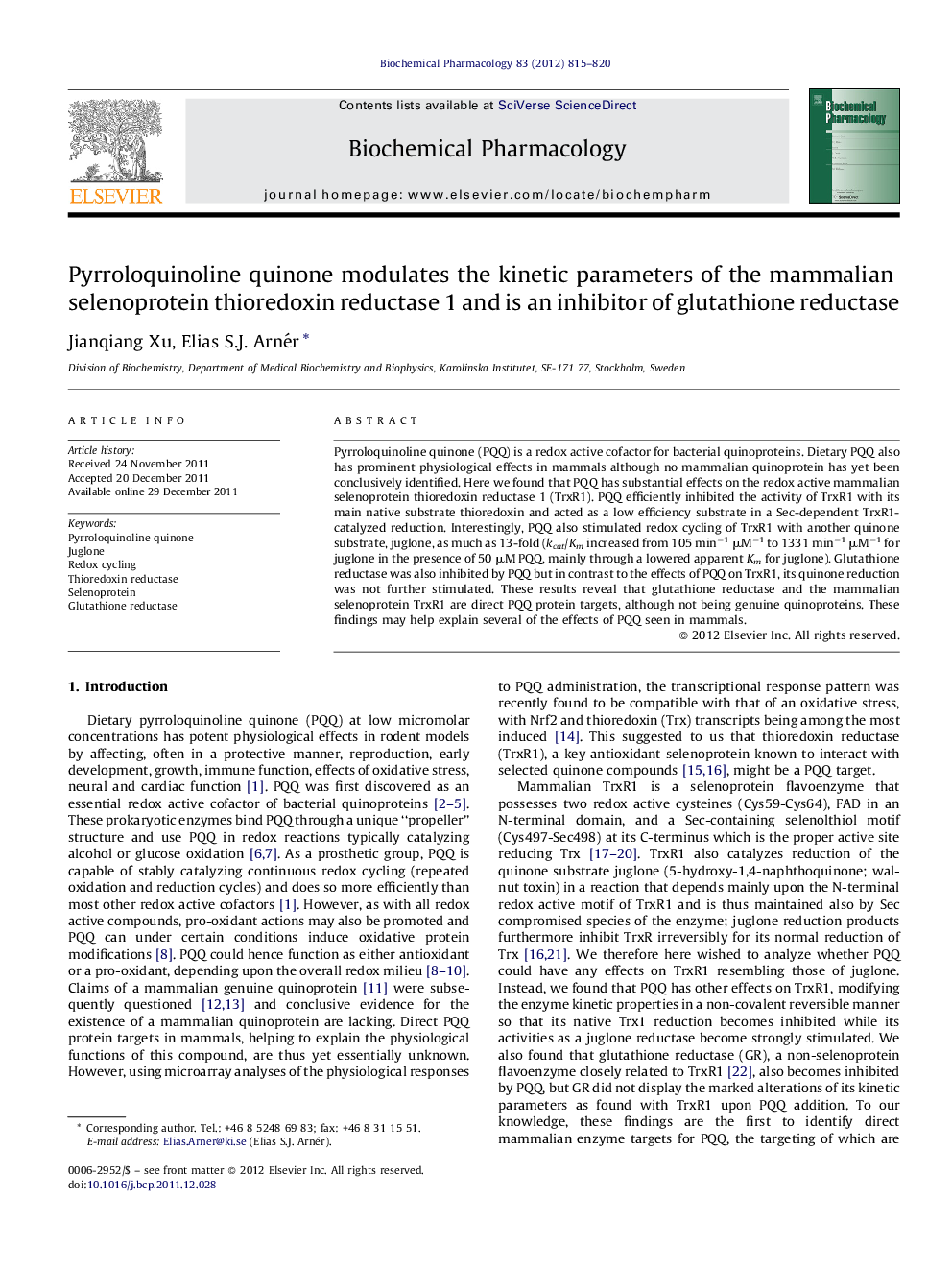| Article ID | Journal | Published Year | Pages | File Type |
|---|---|---|---|---|
| 2513526 | Biochemical Pharmacology | 2012 | 6 Pages |
Pyrroloquinoline quinone (PQQ) is a redox active cofactor for bacterial quinoproteins. Dietary PQQ also has prominent physiological effects in mammals although no mammalian quinoprotein has yet been conclusively identified. Here we found that PQQ has substantial effects on the redox active mammalian selenoprotein thioredoxin reductase 1 (TrxR1). PQQ efficiently inhibited the activity of TrxR1 with its main native substrate thioredoxin and acted as a low efficiency substrate in a Sec-dependent TrxR1-catalyzed reduction. Interestingly, PQQ also stimulated redox cycling of TrxR1 with another quinone substrate, juglone, as much as 13-fold (kcat/Km increased from 105 min−1 μM−1 to 1331 min−1 μM−1 for juglone in the presence of 50 μM PQQ, mainly through a lowered apparent Km for juglone). Glutathione reductase was also inhibited by PQQ but in contrast to the effects of PQQ on TrxR1, its quinone reduction was not further stimulated. These results reveal that glutathione reductase and the mammalian selenoprotein TrxR1 are direct PQQ protein targets, although not being genuine quinoproteins. These findings may help explain several of the effects of PQQ seen in mammals.
Graphical abstractFigure optionsDownload full-size imageDownload as PowerPoint slide
